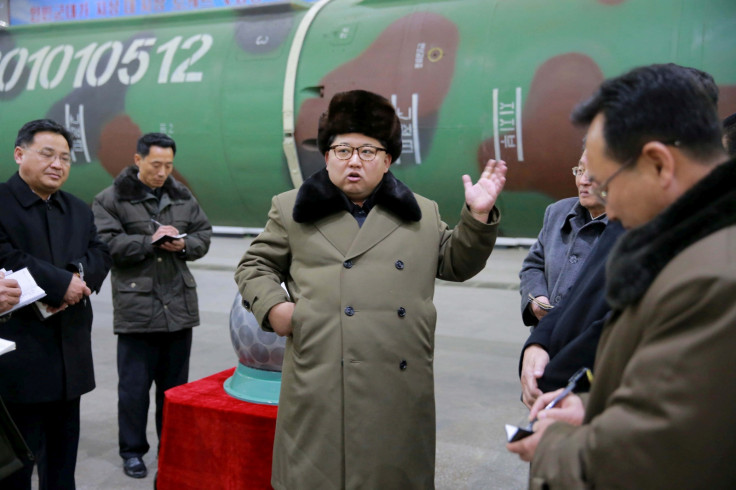The only way of stopping more nuclear tests in North Korea is by bypassing the state
Diplomacy with the DPRK has failed, but there are many North Koreans who still have networks back home.

The DPRK's fifth nuclear test brings us more of the same. A renewed commitment on the part of the DPRK to develop viable nuclear heads that can be transported by ballistic missile.
A flurry of international reactions denouncing the test and warning North Korea to stop its nuclear programme.
Equally loud counter-voices claiming that DPRK nuclear armament is understandable and will never result in the offensive use of these weapons. Continued scientific work in the DPRK that will culminate in a sixth test. And then the cycle will start all over again.
There are two things that should not escape notice here. The first is hardly ever commented on: the dangers not of North Korea launching a missile with a nuclear warhead, but of a nuclear accident.
Common sense would seem to dictate that North Korea's scientific isolation, its dearth of resources and its draconic reactions to the failures of individuals make for a dangerous concoction when developing nuclear weaponry.
If a nuclear accident would take place in the DPRK (let's remember it happened in Fukushima), it is unlikely its neighbours would be able to ignore this. China, Russia, Japan, South Korea and the US could not afford to be on the sideline when radation is leaking out of North Korea. The possible consequences of this are unsettling.
Then there is the fact that state-to-state diplomacy with the DPRK has completely and utterly failed. It is time to acknowledge this and look for alternative ways to defuse an increasingly tense situation. Informal diplomacy, the next logical stop, is also dead. We now know, or at least we should, that there is a complex of coordinated policies that underlie DPRK responses to initiatives in informal diplomacy.
Whether it's humanitarian aid, financial investments, food aid or cultural exchange, North Korea has detailed policies in place to maximise profit and minimise contagion of its people by foreign ideas and achievements.
So the question remains: how is a sixth (and a seventh, eighth and ninth) nuclear test (and thus further regional instability) avoided? North Korea needs workable nuclear weapons both domestically (for legitimation) and internationally (for deterrence and let's hope not for offensive purposes). It will continue to develop them. The only way I see of constructively and realistically – as opposed to ideologically and idealistically – engaging North Korea is by completely bypassing the state and engaging with North Koreans directly.
The state is a mere vehicle for factional interests in Pyongyang. Nothing is to be gained by engaging it, much is to be gained by engaging average North Koreans instead, helping to separate themselves in all possible ways, from the system. Exiled North Korean public intellectual Jang Jin-sung christened this notion "separative engagement". A place to start is outside of the DPRK.
There are hundreds of thousands of North Koreans outside of the country who still have their networks back home. A significant number of North Koreans crosses the Chinese-North Korean border regularly in order to trade. In the absence of viable diplomacy, the international community should consider to invest in these people, e.g. through microcredits, because they may very well be the only feasible counter-voice to a system that is increasingly impossible to talk to.
The death of diplomacy has left the international world with no direct options except military intervention, which would be a cure worse than the affliction. Separative engagement, freezing out the state and engaging average North Koreans is the only path avaibable, even though this will take time, effort and significant investments. The alternatives are much worse.
Remco Breuker is Professor of Korean Studies at Leiden University
© Copyright IBTimes 2025. All rights reserved.




















